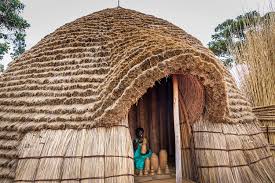Welcome to the fourth article in our Wazimba Travel Rwanda series! If you thought Rwanda was just about gorillas and stunning landscapes, prepare to have your mind completely blown. We’re diving into something that will fundamentally change how you see this remarkable country—a cultural renaissance that’s happening right before our eyes, where ancient traditions dance with cutting-edge innovation in ways that shouldn’t work but absolutely do.
Here’s what blew us away when we first started operating in Rwanda: this isn’t just a country that’s recovered from tragedy—it’s a nation that’s used its darkest chapter as fuel for one of the most inspiring cultural transformations on the planet. As your local tour operator, we’ve watched Rwanda evolve from a place people whispered about to a destination where tradition and modernity create magic together. And honestly? The world needs to see what’s happening here.
Kigali: Africa’s Most Surprising Capital
Let’s start with Kigali, because this city will completely shatter every preconception you have about African capitals. Forget dusty, chaotic urban sprawls—Kigali is clean, green, organized, and pulsing with an energy that’s part Silicon Valley startup culture, part ancient African wisdom.
The City That Shouldn’t Exist: Here’s the thing about Kigali—by all logic, this city should be struggling. Instead, it’s become Africa’s model capital. Streets are spotless (seriously, you could eat off the sidewalks), traffic flows smoothly, and the skyline is a blend of modern architecture and rolling hills that creates the most photogenic urban landscape on the continent.
Tech Hub Meets Cultural Center: Kigali is simultaneously Rwanda’s tech capital and its cultural heart. You’ll find coding bootcamps in buildings next to traditional craft markets, startup accelerators across from art galleries showcasing contemporary Rwandan painters, and innovation labs where young entrepreneurs develop apps while traditional musicians practice in the courtyard.
The Motorcycle Magic: Kigali’s motorcycle taxis aren’t just transportation—they’re a cultural phenomenon. Incredibly organized, surprisingly comfortable, and absolutely the best way to experience the city’s rhythm. Plus, the drivers are some of the best cultural ambassadors you’ll meet.
Wazimba Travel Kigali Insider Tip: Take a walking tour through Kigali’s neighborhoods on a Saturday morning. You’ll see the real rhythm of the city—families heading to markets, kids playing soccer in perfectly maintained parks, and the kind of community life that makes you wish every city could be like this.
Genocide Memorials: Stories of Resilience
We need to address this honestly—Rwanda’s genocide memorials aren’t easy visits, but they’re absolutely essential for understanding the country’s remarkable transformation. These sites tell stories of unimaginable tragedy that became the foundation for incredible resilience.
Kigali Genocide Memorial: This isn’t just a museum—it’s a masterpiece of storytelling that traces Rwanda’s history from pre-colonial times through the genocide to today’s recovery. The memorial is beautifully designed, incredibly respectful, and tells Rwanda’s story with honesty and hope.
Murambi Memorial: Located about two hours from Kigali, Murambi offers a different perspective on remembrance. The preserved buildings and remains are stark reminders, but the site also celebrates the survivors and the community’s determination to never forget while choosing to forgive.
The Message of Unity: What’s remarkable about Rwanda’s approach to memorializing tragedy is the focus on unity and reconciliation. These aren’t sites of anger or revenge—they’re places where Rwanda demonstrates how a society can choose healing over hatred.
Nyamata and Ntarama Churches: These former churches, now memorials, show how communities have transformed sites of tragedy into places of remembrance and education. The visits are profound and moving.
Wazimba Travel Perspective: We always prepare our clients for memorial visits—they’re emotionally challenging but ultimately inspiring. Understanding Rwanda’s past makes witnessing its present transformation even more remarkable.
Traditional Arts Renaissance
Rwanda’s traditional arts aren’t museum pieces—they’re living, breathing expressions of culture that are experiencing an incredible renaissance as young Rwandans rediscover and reinterpret their heritage.
Intore Warriors: The Intore dance isn’t just performance—it’s poetry in motion. These traditional warrior dances combine athletics, artistry, and storytelling in ways that will leave you absolutely mesmerized. Modern Intore groups are taking traditional forms and adding contemporary elements that somehow make ancient dances feel completely current.
The Dance Experience: Watching Intore performances, you’ll see dancers leap impossibly high, spears glinting in choreographed patterns that tell stories of bravery, community, and celebration. The costumes are spectacular—leopard skins, elaborate headdresses, and traditional weapons that are works of art in themselves.
Drumming Traditions: Rwandan drumming is hypnotic and powerful. The royal drums, historically used for ceremonies and communication, create rhythms that you’ll feel in your chest. Contemporary drummers are blending traditional techniques with modern styles, creating music that’s ancient and innovative.
Basket Weaving Mastery: Rwanda’s traditional basket weaving has become the country’s signature craft export. The intricate patterns and techniques passed down through generations are now creating income for thousands of women while preserving cultural knowledge.
Pottery Villages: In places like Uwumurage village, traditional pottery techniques are thriving. Watching master potters create beautiful vessels using methods unchanged for centuries is absolutely mesmerizing, and the finished products are stunning.
Music Scene: Ancient Meets Modern
Rwanda’s music scene is exploding, and the fusion of traditional and contemporary sounds is creating something completely unique in African music.
Traditional Instruments Meet Modern Beats: Musicians are taking traditional instruments like the inanga (string instrument), ikembe (thumb piano), and various percussion instruments and blending them with contemporary production techniques. The result is music that sounds both timeless and completely fresh.
Kinyarwanda Hip-Hop: Rwanda’s hip-hop scene is incredible, with artists rapping in Kinyarwanda over beats that incorporate traditional melodies. It’s social commentary, cultural pride, and incredible artistry rolled into one.
Festival Culture: Rwanda’s music festivals are becoming major events. From traditional music celebrations to contemporary festivals that attract international artists, the music scene is vibrant and growing.
Church Music Innovation: Rwanda’s church music tradition is also evolving, with contemporary Gospel music that incorporates traditional harmonies and instruments creating something spiritually powerful and culturally authentic.
Modern Rwanda: The Singapore of Africa
Rwanda’s transformation into a modern, efficient state while maintaining cultural authenticity is genuinely remarkable and worth experiencing firsthand.
Digital Rwanda: This is one of Africa’s most connected countries. Free WiFi is everywhere, mobile payments are standard, and digital services work better than in many developed countries. But somehow, this technological advancement enhances rather than replaces traditional culture.
Green City Initiative: Kigali’s commitment to being a green city is impressive. Electric buses, extensive green spaces, and the famous plastic bag ban create an urban environment that feels both modern and sustainable.
Women’s Leadership: Rwanda has the highest percentage of women in parliament globally, and you’ll see this female leadership reflected throughout society. It’s created a culture that feels progressive and inclusive in remarkable ways.
Innovation Hubs: Places like kLab and Impact Hub Kigali are incubating the next generation of African tech entrepreneurs, but these spaces also host cultural events, art exhibitions, and community gatherings that blend innovation with tradition.
Cultural Immersion Experiences
The best way to experience Rwanda’s cultural renaissance is through immersive experiences that let you participate rather than just observe.
Cooking Classes with Families: Learning to prepare traditional Rwandan dishes like ubugali, ibirayi, and traditional stews while sitting around a fire with Rwandan families is incredibly authentic and fun. The food is delicious, and the conversations are even better.
Traditional Craft Workshops: Learning basket weaving, pottery making, or traditional wood carving from master artisans isn’t just about creating something beautiful—it’s about understanding the cultural knowledge embedded in these ancient skills.
Language Lessons: Basic Kinyarwanda lessons are incredibly rewarding. Rwandans light up when visitors attempt their language, and even basic phrases open doors to deeper cultural connections.
Community Celebrations: If your timing is right, participating in community celebrations, wedding ceremonies, or harvest festivals provides incredible insights into contemporary Rwandan life.
Homestays: Staying with Rwandan families, especially in rural areas, offers unfiltered experiences of daily life, traditional practices, and genuine cultural exchange.
Historical Sites and Royal Heritage
Rwanda’s pre-colonial kingdoms left fascinating historical sites that provide context for understanding traditional governance and social structures.
King’s Palace Museum (Nyanza): The reconstructed traditional royal palace showcases how Rwanda’s monarchy lived and governed. The architecture, using traditional materials and techniques, is stunning, and the guided tours provide excellent historical context.
National Museum (Huye): Located in Huye (formerly Butare), this museum houses incredible collections of traditional artifacts, musical instruments, and historical items that tell Rwanda’s pre-colonial story.
Ancient Kingdom Sites: Various sites throughout Rwanda preserve remnants of the ancient kingdoms, from royal burial sites to traditional court locations.
Oral History Preservation: Rwanda has incredible oral history traditions, and meeting with traditional historians who preserve these stories through spoken word is fascinating.
Community-Based Cultural Tourism
Rwanda’s approach to community-based tourism ensures that cultural experiences benefit local communities directly while providing authentic encounters for visitors.
Cultural Villages: Several communities have developed cultural tourism programs that showcase traditional life while generating income. These aren’t artificial tourist villages—they’re real communities sharing their actual way of life.
Cooperative Tourism: Many cultural experiences are run by cooperatives that distribute benefits throughout the community. Your visit directly supports traditional artisans, performers, and cultural preservationists.
School Visits: Visiting local schools provides insights into how Rwanda is educating its next generation while maintaining cultural connections. The students are incredibly bright and eager to share their perspectives.
Market Experiences: Rwanda’s local markets are cultural experiences in themselves. From traditional medicines to local foods to handmade crafts, markets reflect the intersection of tradition and modern life.
The Arts and Crafts Revival
Rwanda’s traditional crafts are experiencing a remarkable revival, driven by both cultural pride and economic opportunity.
Contemporary Art Scene: Rwandan painters, sculptors, and mixed-media artists are gaining international recognition. Art galleries in Kigali showcase work that reflects both traditional themes and contemporary experiences.
Fashion Evolution: Rwandan designers are creating contemporary fashion using traditional fabrics, patterns, and techniques. The results are stunning and uniquely Rwandan.
Jewelry and Metalwork: Traditional metalworking techniques are being used to create contemporary jewelry and art pieces that are both beautiful and culturally significant.
Wood Carving Mastery: From traditional masks to contemporary sculptures, Rwandan wood carvers are creating pieces that reflect both ancient skills and modern artistic vision.
Cultural Festivals and Events
Rwanda’s cultural calendar is packed with events that celebrate both traditional culture and contemporary creativity.
Umuganura (Harvest Festival): This traditional harvest celebration has been revived as a national celebration of Rwandan culture, complete with traditional foods, music, dance, and community activities.
Film Festivals: Rwanda’s growing film industry is celebrated through various festivals that showcase both local and international films, often with strong cultural themes.
Cultural Weeks: Different regions celebrate their specific cultural traditions through week-long festivals featuring local music, dance, food, and crafts.
Art Exhibitions: Kigali’s growing gallery scene hosts regular exhibitions featuring both emerging and established Rwandan artists.
Wazimba Travel Cultural Expertise
As your local tour operator, we’ve developed deep relationships with cultural practitioners, artists, and community leaders throughout Rwanda, allowing us to offer authentic cultural experiences that benefit local communities.
Authentic Connections: Our cultural experiences aren’t staged tourist shows—they’re genuine encounters with real practitioners of Rwandan traditions who are eager to share their knowledge and stories.
Respectful Approach: We ensure all cultural visits are conducted with respect for local customs and beliefs, providing proper context and preparation for meaningful encounters.
Community Benefits: Our cultural programs are designed to directly benefit the communities we visit through fair compensation and long-term partnerships.
Expert Guides: Our cultural guides are often cultural practitioners themselves—musicians, dancers, artisans, and historians who can provide deep insights into Rwandan traditions.
The Rwandan Renaissance
What’s happening in Rwanda culturally is genuinely remarkable—a society that’s using its traditional values as the foundation for modern progress while celebrating both its ancient heritage and its contemporary achievements.
This isn’t cultural preservation in a museum sense—it’s living culture that’s evolving, adapting, and thriving. Young Rwandans are proud of their traditions while simultaneously building a modern nation that’s becoming a model for the entire continent.
Experiencing Rwanda’s cultural renaissance means witnessing a society that has chosen healing over hatred, unity over division, and progress over stagnation while maintaining deep connections to ancestral wisdom and traditional practices.
Ready for Cultural Immersion?
Rwanda’s cultural treasures aren’t just historical artifacts—they’re living expressions of a society that has transformed tragedy into triumph while maintaining deep respect for traditional wisdom and values.
In our fifth article, we’ll shift gears completely and explore Rwanda’s incredible adventure opportunities, from volcano climbing to canopy walks to water sports that take full advantage of those stunning landscapes we talked about in our first piece.
Ready to experience the cultural renaissance that’s making Rwanda one of Africa’s most inspiring destinations? Contact the Wazimba Travel team to design cultural experiences that will connect you with Rwanda’s remarkable story of resilience, creativity, and hope. We’ll create encounters that showcase both ancient traditions and modern achievements in the Land of a Thousand Hills.




